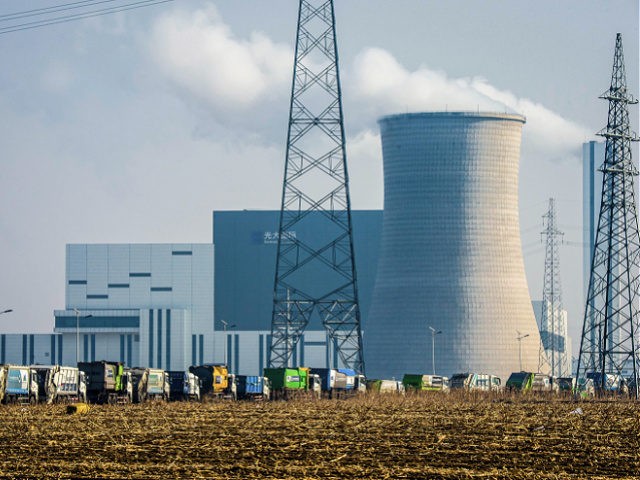The Chinese government is allowing toxic wastewater from a state-run power plant in northeastern China’s Liaoning province to flow into the Bohai Sea — a minor section of the Pacific Ocean’s Yellow Sea — despite recently criticizing Japan for its planned release of nuclear wastewater into the Pacific Ocean.
“The leaked wastewater was reported to have flowed into Liaohe River which runs in the south of northeastern China and flows into the Bohai Sea on the east coast of the Chinese mainland,” China’s state-run Global Times reported on April 25. The Bohai Sea is the northwestern extension of the Yellow Sea, which borders the western side of the Korean Peninsula.
“The concentration of ammonia nitrogen in the leaked water is about 120 milligrams per liter while the maximum approved level of concentration of water pollutants is 10 milligrams per liter, according to water discharge standards in Liaoning,” the state-run China Central Television (CCTV) reported on April 25.
Chinese government officials first reported Liaoning’s wastewater leakage to Chinese media on April 21 and said the wastewater was produced according to normal protocol at the coal-based Tieling power plant in northern Liaoning province.
“The leakage … happened when the power plant was handling ashes from the burning of coal. Water is used to flush ash and transport it to an ash field by pipeline, the impurities in the ash slurry are deposited in the ash field and the clarified water is returned to the power plant for recycling,” CCTV reported.
“The plant piled up the ash in the field which produced a large amount of wastewater. … The exact amount of contaminated water is unknown,” according to CCTV.
A Chinese “national expert group of environmental emergency response” arrived in Tieling on April 20 and began implementing measures “to decrease the environmental impact” of the wastewater leakage, which include “blocking the contaminated water and releasing [fresh] water to reduce pollution,” according to the Global Times.
“The water quality in Tieling has improved and it is expected that the polluted water will reach the required standards before reaching the sea,” the emergency response team alleged.
Both China and South Korea have voiced strong opposition to the Japanese government’s decision on April 13 to release 1.25 million tons of contaminated water from the destroyed Fukushima nuclear power plant into the Pacific Ocean starting in 2023. Japan has said the water will be treated with an advanced liquid processing system (ALPS) to remove most of its radioactive elements before it is released into the Pacific Ocean. Both Seoul and Beijing said the ALPS filtration method is insufficient to guarantee the water’s safety before it is released into water directly neighboring South Korea and China.

COMMENTS
Please let us know if you're having issues with commenting.